Search Results
Showing results 201 to 220 of 306
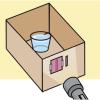
Bending Light
Source Institutions
In this optics activity, learners make a lens and explore how the eye manipulates the light that enters it.

Release the Rainbow
Source Institutions
In this activity, learners create a water prism to break light into the seven colors of the rainbow.
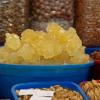
Comparing Crystals
Source Institutions
In this chemistry activity (page 3 of the PDF), learners will learn about crystals by growing their very own.
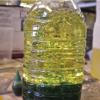
Gassy Lava Lamp
Source Institutions
In this activity, learners use oil, water, food coloring and antacid tablets to create a bubbling lava lamp. Use this activity to introduce concepts related to density, hydrophobicity vs.

Unleakable Bag
Source Institutions
In this activity, learners explore the flexibility of polymer chains by pushing sharpened pencils through a Ziploc bag.
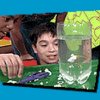
Flinker
Source Institutions
In this activity, learners make a foam packing peanut "flink"--neither float away nor sink--in water. Learners experiment with materials to make a Flinker that "flinks" for 10 seconds.
Mix and Match
Source Institutions
In this optics activity, learners explore color by examining color dots through colored water and the light of a flashlight.
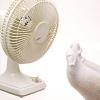
Sock It To Me
Source Institutions
In this activity, learners discover how sweating makes us feel cooler. Learners put on one damp sock and one dry sock and sit in front of a fan.
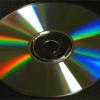
Reflecting Rainbows: Decorate Your White Walls With Rainbow Colors!
Source Institutions
Like water drops in falling rain, a CD separates white light into all the colors that make it up.
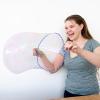
Bubble Tray
Source Institutions
In this activity, learners use simple materials to create giant bubbles.

Ready, Set, Fizz!
Source Institutions
In this activity, learners explore the chemical reaction between water and effervescent antacid tablets. This hands-on activity models how a material can act differently when it's nanometer-sized.
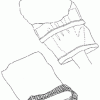
How Animals Stay Warm
Source Institutions
In this quick activity, learners explore how blubber protects animals from the cold by making a "blubber mitt." Using cooking shortening, two zip-top sandwich bags, and duct tape, learners simulate bl
Why is the Sky Blue?
Source Institutions
In this activity, learners create a "mini sky" in a glass of water in a dark room.
Guiding Light
Source Institutions
In this optics activity, learners use glass and water to demonstrate total internal reflection (TIR).
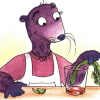
Veggies with Vigor
Source Institutions
In this activity, learners try to revive wilted celery. Learners discover that plants wilt when their cells lose water through evaporation. Use this activity to introduce capillary action.
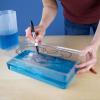
Exploring Earth: Rising Sea
Source Institutions
“Exploring Earth: Rising Sea” is a hands-on activity demonstrating ways to use topographical mapping techniques to track changes in sea level. The activity is connected to current NASA research.
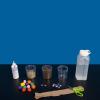
Make a Friend from Soil and Seeds
Source Institutions
Learners assemble a figure from a nylon stocking or sock stuffed with soil and seeds. The ends of the nylons inside the jar absorb water, which feeds the grass seeds.

Hollandaise Sauce: Emulsion at Work
Source Institutions
In this activity, learners follow a recipe to make hollandaise sauce. Learners discover how cooks use egg yolks to blend oil and water together into a smooth mix.

Make Your Own Sea Otter
Source Institutions
In this activity about sea otters, learners make their own "otter whiskers" and use them to find objects underwater.
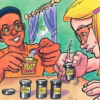
A Feast for Yeast
Source Institutions
In this activity on page 6 of the PDF (Get Cooking With Chemistry), learners investigate yeast. Learners prepare an experiment to observe what yeast cells like to eat.
